5 Essential Endocrine System Worksheet Answers

In the realm of biology and anatomy, understanding the endocrine system is crucial for students aiming to explore how the body's internal functions are regulated. This system, composed of glands that secrete hormones into the bloodstream, controls a variety of bodily processes like growth, metabolism, and sexual development. This long-form blog post will delve into 5 essential endocrine system worksheet answers, offering comprehensive insights into the functions and intricacies of this vital system.
The Role of the Endocrine System

The endocrine system is pivotal in maintaining homeostasis, ensuring that bodily conditions remain stable despite external changes. Here are the key roles:
- Hormone Production and Secretion: Glands like the pituitary, thyroid, and adrenal glands produce hormones that target specific cells or organs.
- Growth and Development: Hormones like growth hormone from the pituitary gland or sex hormones from the gonads play a significant role in growth and sexual maturation.
- Metabolism Regulation: The thyroid gland, for instance, produces hormones that regulate the rate at which the body uses energy.
- Stress Response: The adrenal glands secrete cortisol and adrenaline in response to stress, preparing the body for 'fight or flight' situations.

Essential Worksheet Answers
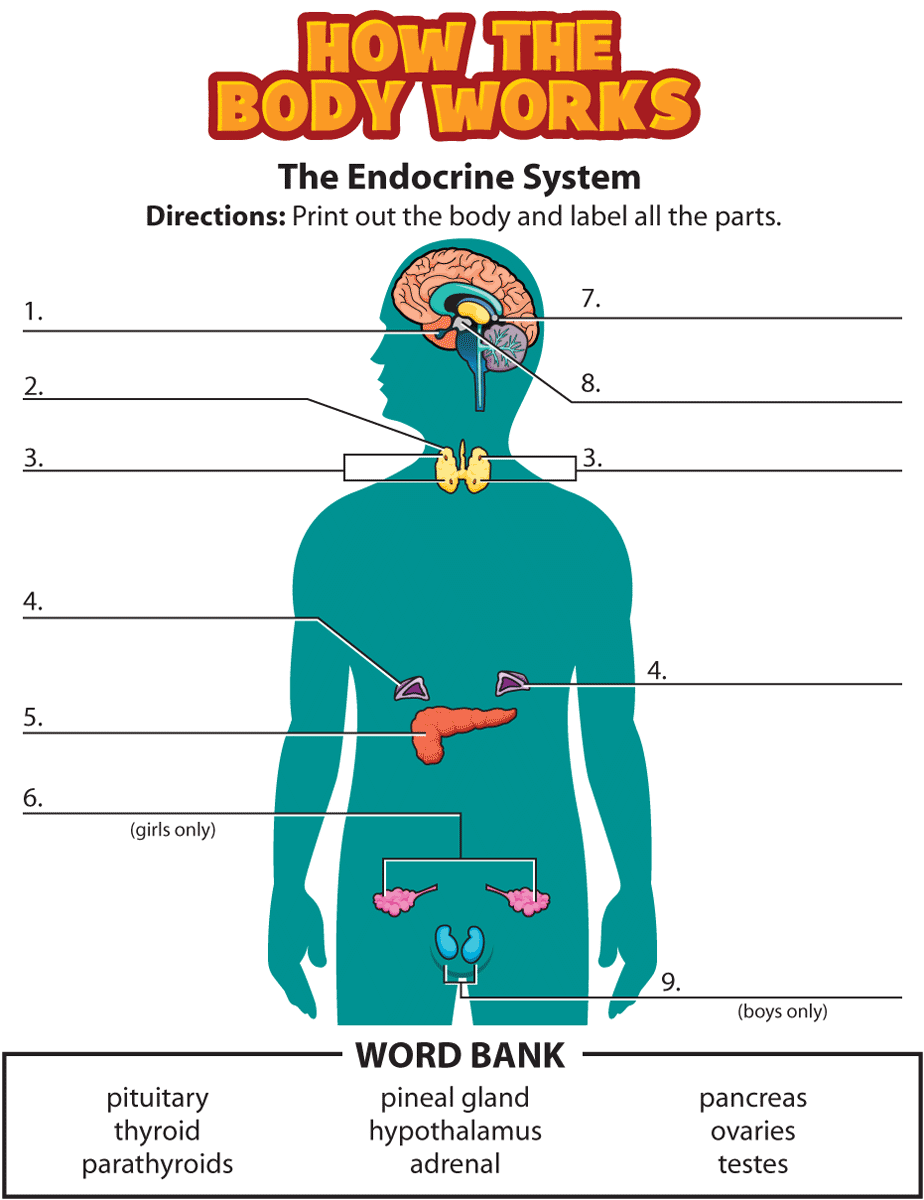
1. What is the difference between endocrine glands and exocrine glands?
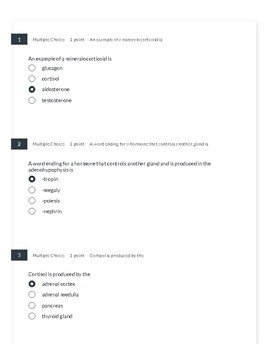
The distinction between endocrine and exocrine glands lies in their secretion method and destination:
- Endocrine glands: These glands secrete hormones directly into the bloodstream. Examples include the pituitary gland, thyroid gland, and adrenal glands. Their secretions, hormones, act at distant sites in the body.
- Exocrine glands: These glands release their products through ducts onto an epithelial surface or into a cavity. Examples include sweat glands, salivary glands, and mammary glands. Their secretions have local effects.
💡 Note: Hormones secreted by endocrine glands are crucial for long-term regulation, while exocrine secretions are often involved in immediate physiological processes.
2. Identify the Major Endocrine Glands and Their Functions
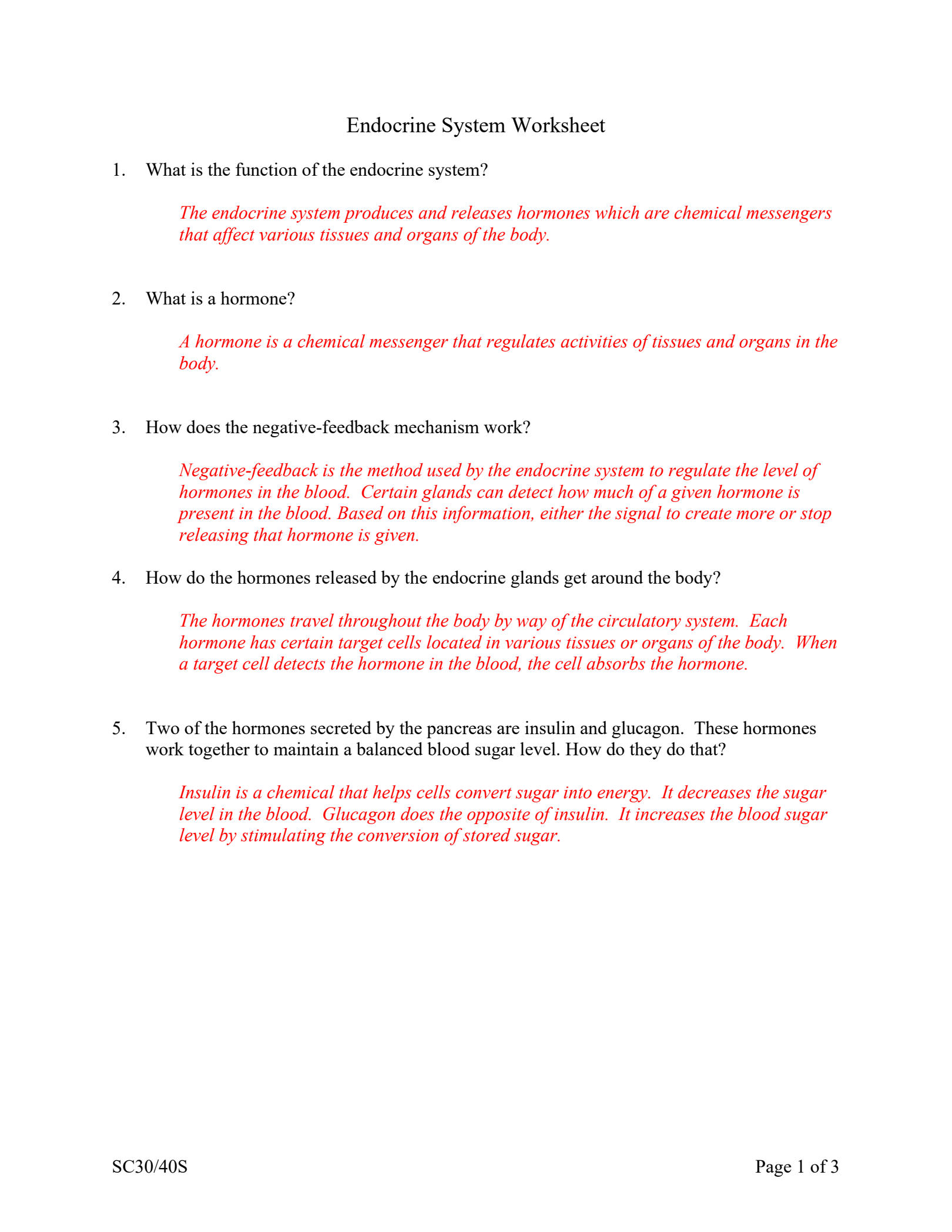
| Gland | Main Hormones | Primary Functions |
|---|---|---|
| Pituitary Gland | GH (Growth Hormone), ACTH (Adrenocorticotropic Hormone), TSH (Thyroid Stimulating Hormone), FSH (Follicle Stimulating Hormone), LH (Luteinizing Hormone) | Growth, metabolism, stress response, reproduction |
| Thyroid Gland | Thyroxine (T4), Triiodothyronine (T3), Calcitonin | Metabolism regulation, calcium homeostasis |
| Adrenal Glands | Cortisol, Adrenaline, Aldosterone | Stress response, blood sugar regulation, water-salt balance |
| Pancreas | Insulin, Glucagon | Blood sugar regulation |
| Testes (Males) / Ovaries (Females) | Testosterone, Estrogen, Progesterone | Reproductive function, secondary sexual characteristics |

3. How do Hormones Act on Their Target Cells?
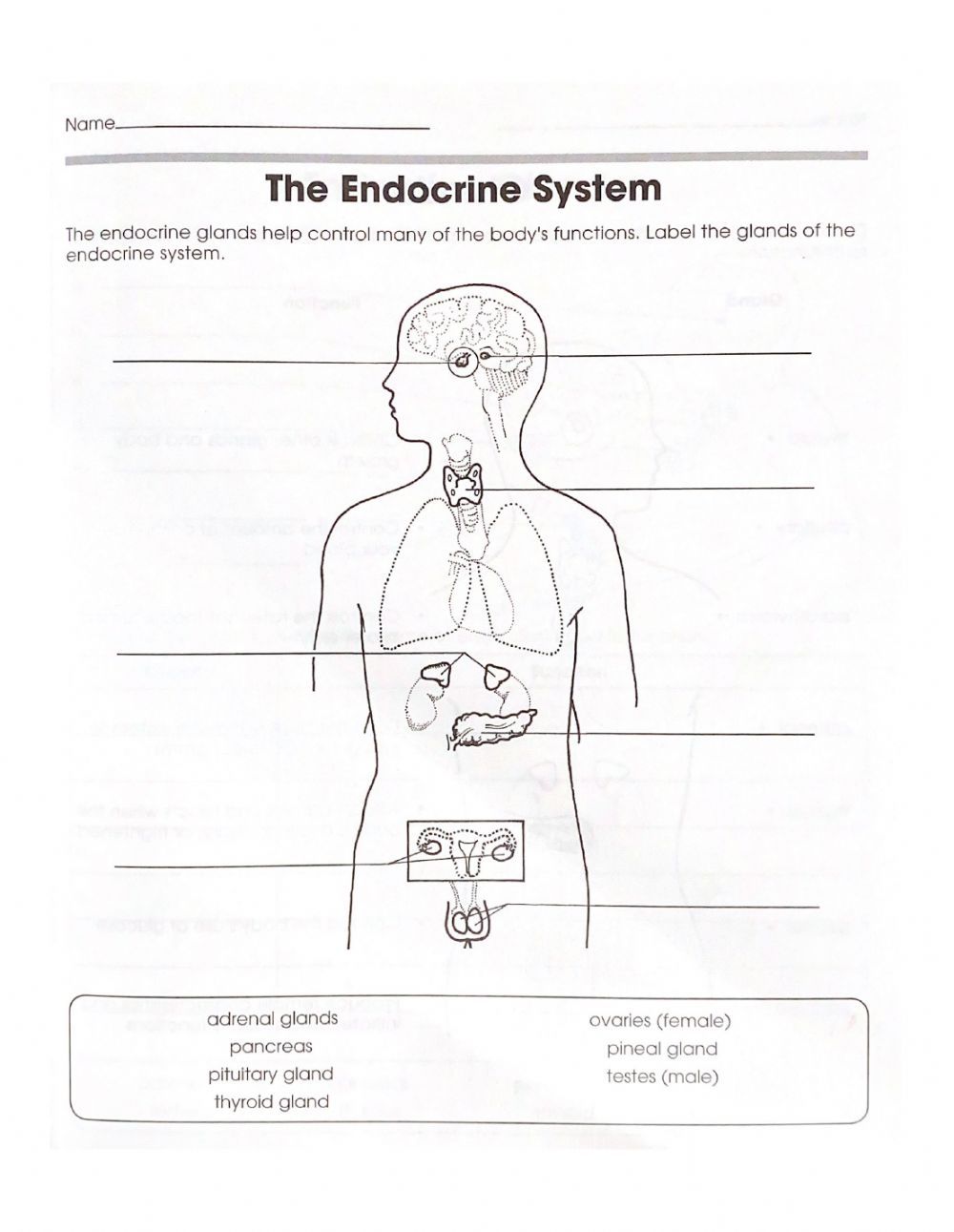
Hormones influence target cells through several mechanisms:
- Receptor Binding: Hormones bind to specific receptors on or within cells, triggering a cascade of cellular responses.
- Second Messengers: Many hormones use secondary messengers like cyclic AMP (cAMP) to activate protein kinases, which then regulate cellular processes.
- Direct Gene Activation: Steroid hormones, like cortisol and sex hormones, can pass through the cell membrane and directly interact with nuclear DNA to modify gene expression.
4. Describe the Concept of Negative Feedback in the Endocrine System

Negative feedback is a regulatory mechanism where:
- The secretion of one hormone triggers the production of another hormone that inhibits the initial hormone's release.
- For example, when blood glucose levels rise, the pancreas releases insulin, which facilitates glucose uptake by cells, lowering blood glucose, which in turn reduces insulin secretion.
This feedback loop ensures that hormone levels are kept within narrow limits, promoting physiological stability.
5. How Can Endocrine Disorders Manifest?

Endocrine disorders occur when there's an imbalance in hormone levels or when the system's feedback mechanisms fail:
- Diabetes: Type 1 and Type 2 involve issues with insulin, leading to high blood sugar levels.
- Hyperthyroidism: Overactivity of the thyroid leading to high levels of thyroid hormones, causing symptoms like weight loss, tremors, and increased heart rate.
- Hypothyroidism: Underactivity of the thyroid resulting in reduced thyroid hormones, leading to symptoms like fatigue, weight gain, and cold intolerance.
- Addison's Disease: Adrenal insufficiency where cortisol production is inadequate, causing issues like low blood pressure and skin darkening.
- Cushing's Syndrome: Overproduction of cortisol, resulting in symptoms like weight gain, buffalo hump, and skin changes.
By understanding these disorders, we can better appreciate the intricate balance required for proper endocrine function.
To sum it up, the endocrine system is a complex network of glands and hormones essential for regulating body functions. From growth and development to stress response and metabolism, hormones play a vital role in maintaining our health. Understanding this system through worksheets and learning material not only prepares students for biological studies but also provides insight into the complex interplay of body functions. Whether through identifying glands, exploring hormone actions, or grasping feedback mechanisms, a comprehensive understanding of the endocrine system enriches our knowledge of human biology and health.
What are some common symptoms of thyroid problems?

+
Common symptoms of thyroid issues include changes in weight, energy levels, mood, and skin condition. Hyperthyroidism often leads to weight loss, anxiety, and a rapid heartbeat, while hypothyroidism might cause fatigue, weight gain, and cold sensitivity.
How can one maintain a healthy endocrine system?

+
Maintaining a healthy endocrine system involves lifestyle choices like regular exercise, balanced diet, stress management, and regular medical check-ups. Avoiding toxins and maintaining a healthy weight can also contribute to optimal gland function.
Why is feedback important in the endocrine system?

+
Feedback loops ensure hormonal levels are kept within appropriate ranges, preventing over or underproduction of hormones. This mechanism helps maintain homeostasis and proper physiological function.
Can stress affect the endocrine system?
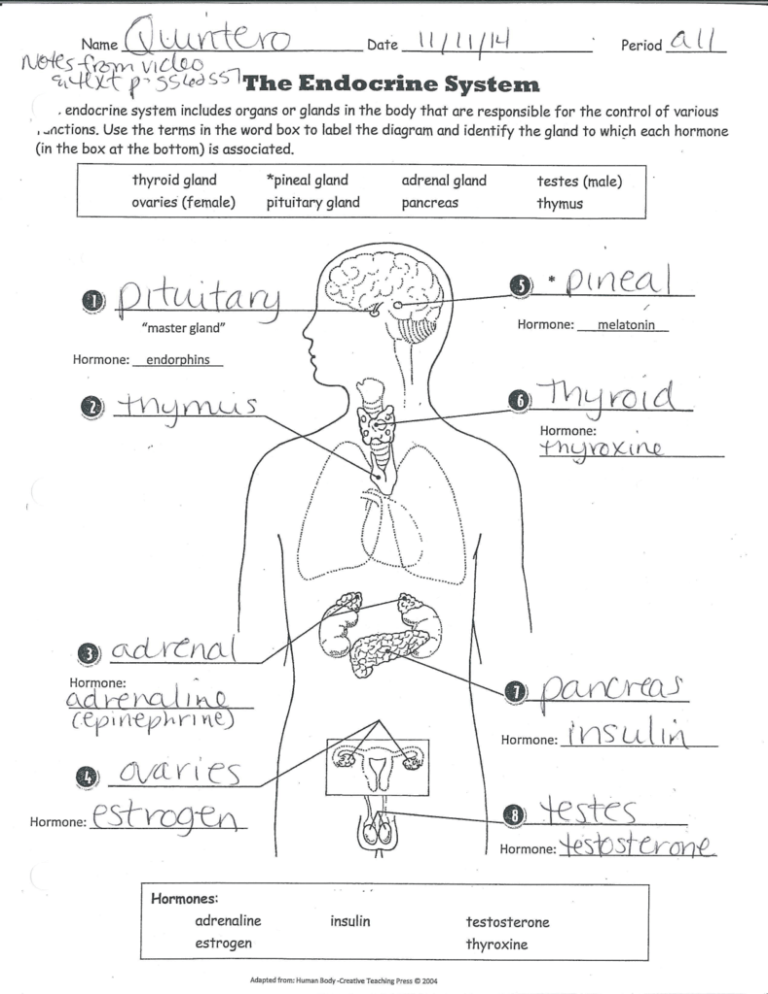
+
Yes, chronic stress can lead to hormonal imbalances, particularly affecting cortisol levels. This can result in various health issues, from altered metabolism to immune system suppression.
How can hormones be administered to treat endocrine disorders?
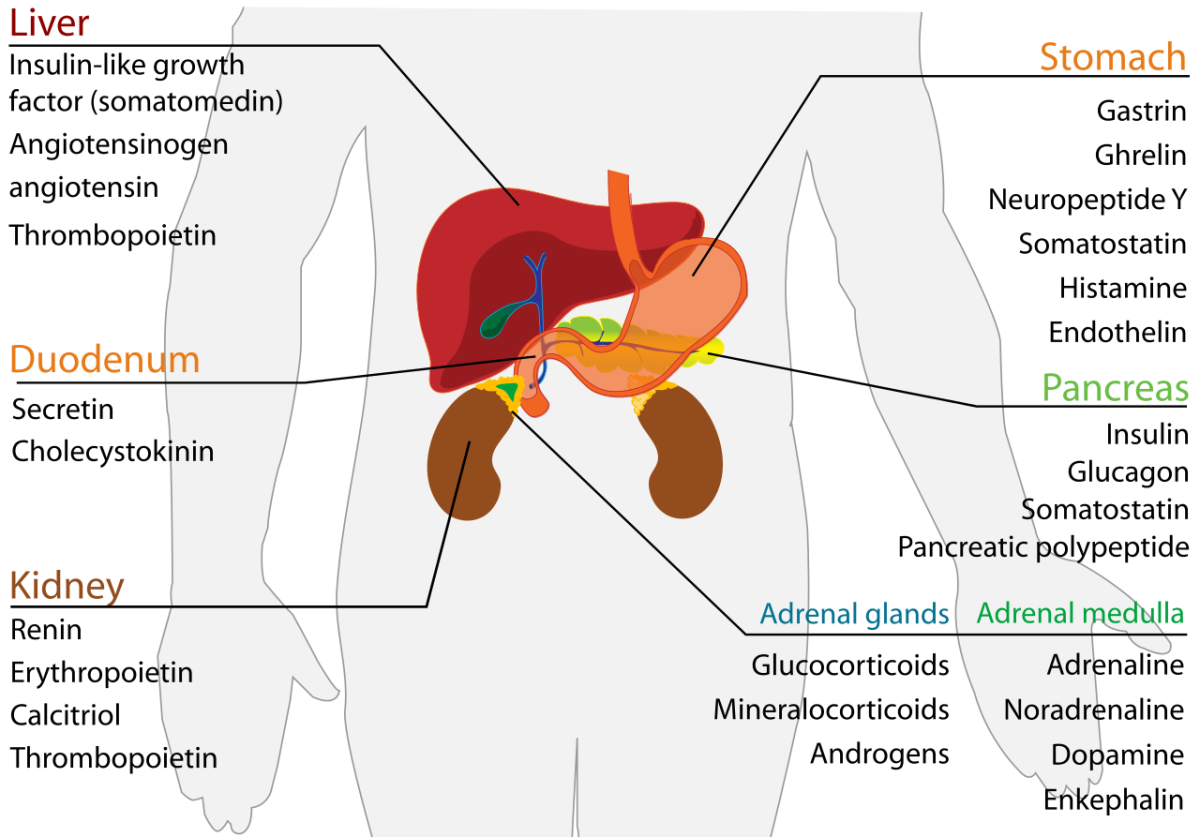
+
Hormones can be administered through various routes like oral pills, injections, patches, or nasal sprays. The method depends on the hormone’s chemical nature, the disorder being treated, and patient-specific factors like absorption rates and convenience.